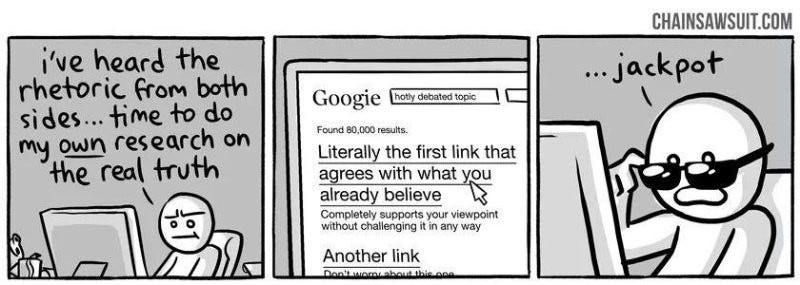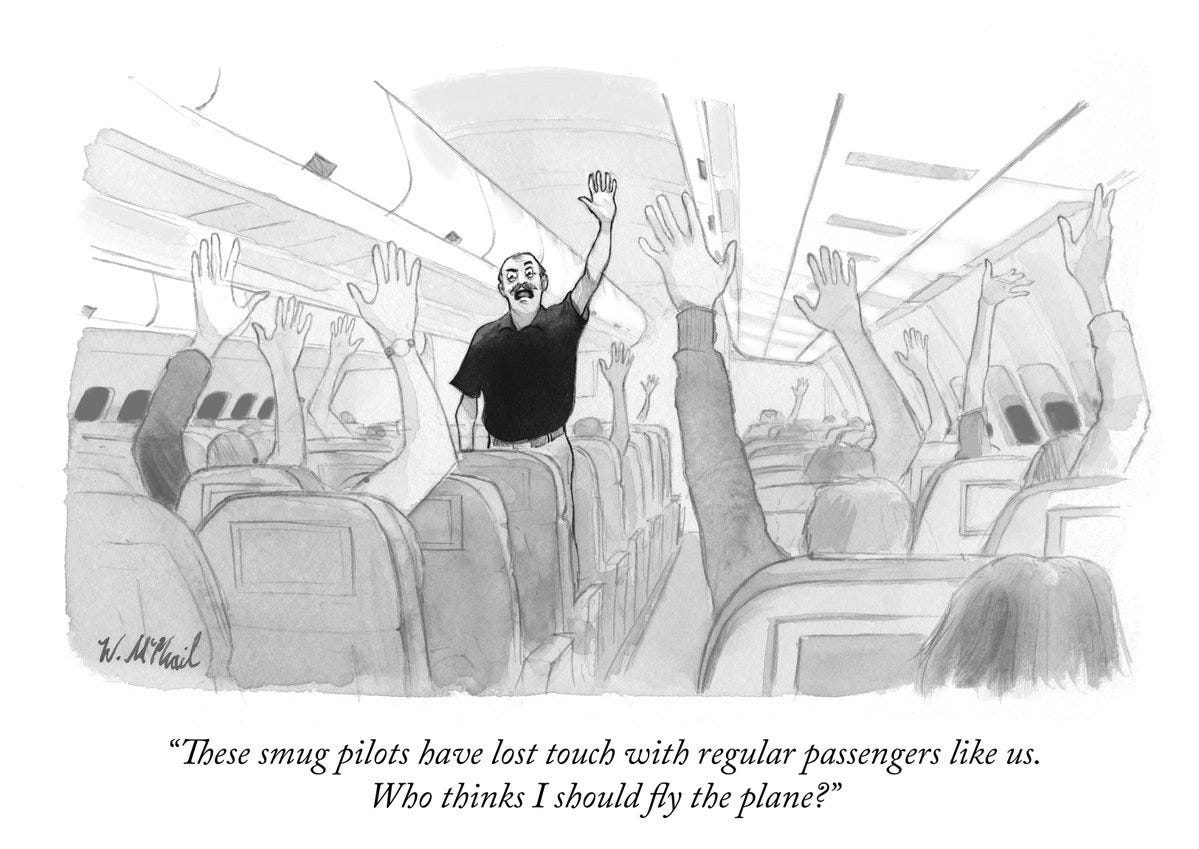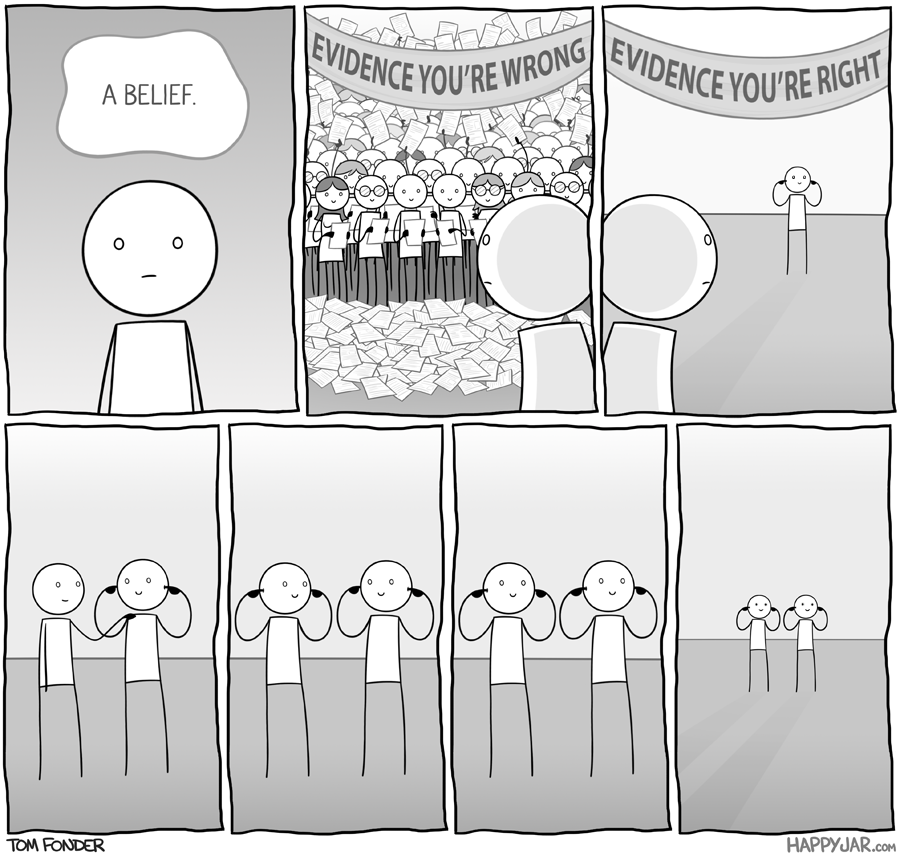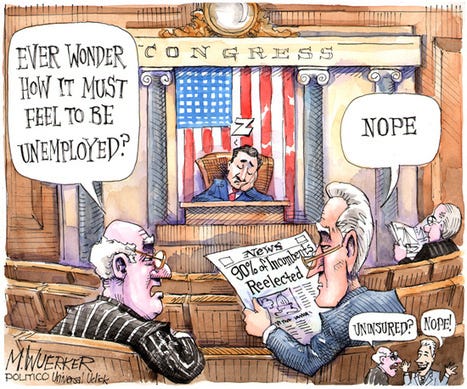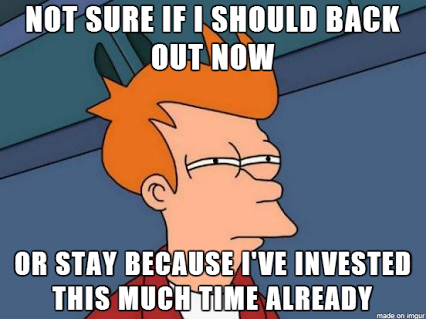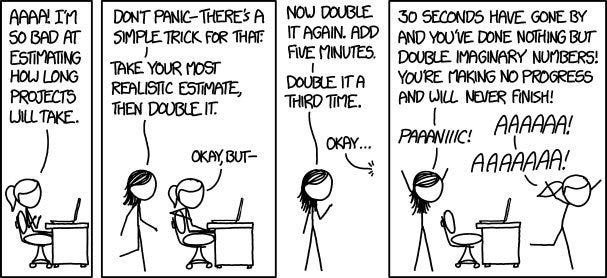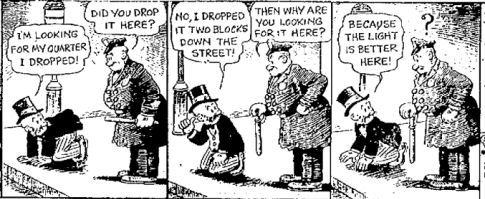The 17 Cognitive Biases That Explain Brexit
It’s all in our heads. Unfortunately
I was reading an article in the Guardian the other day, in which the author suggested that the current problem of #fakenews relates to a specific new type of cognitive bias, called Tribal Epistemology — that is, that truth no longer corresponds to facts or evidence, but rather whether a specific assertion agrees with the viewpoint of the tribe one belongs to.
I like that term, Tribal Epistemology. It seems like a nice term to define the cognitive and social constructs behind the fake news phenomenon.
It got me thinking, are there any other well-known cognitive biases that could go some way to explaining Brexit and all that shite?
Well, as it happens, yes. There are. 17 of them, in fact.
1/ Tribal Epistemology
Information is evaluated based not on conformity to common standards of evidence or correspondence to a common understanding of the world, but on whether it supports the tribe’s values and goals and is vouchsafed by tribal leaders.
The one that started me on this thought-trail.
How does Tribal Epistemology explain some of the reasoning behind fake news, and as a result, all the weirdness/awfulness in politics right now?
Well, if information is not considered factually true based on evidence but rather whether it conforms to ideals of the tribe, then you arrive at the silo state we’re in now, whereby any news or evidence that goes against your tribe’s beliefs is shunned as “fake news” , considered biased, or ignored entirely.
Only trusted sources count and so what effectively happens is that we double down on our beliefs — we believe something is true because our news source of choice tells us that, but our news source tells us that because we think it’s true.
A very neat explanation of the total shitshow we’re in, don’t you think?
2/ Dunning Kruger Effect
The tendency for unskilled individuals to overestimate their own ability and the tendency for experts to underestimate their own ability.
Most people are pretty stupid.
Before you get all aggy about that statement, do the maths. At absolute best anyone of average intelligence or below is by definition, pretty stupid. Depending on which average we’re talking about, that means potentially at least 50% of the population are thick as shit.
Maybe that includes you. Maybe that includes me (hint: nah).
The Dunning Kruger Effect suggests that people unskilled in intelligence (stupids) will not recognise just quite how unskilled they are in intelligence.
So you arrive at a situation whereby, let’s say 52% of the population (ahem) think they know more than the experts. We’ve had enough of experts, after all.
There might just be a slight relevance to Brexit in this one. Just a tad.
3/ Availability Cascade
A self-reinforcing process in which a collective belief gains more and more plausibility through its increasing repetition in public discourse (or “repeat something long enough and it will become true”).
Brexit means Brexit. No deal is better than a bad deal. We’ll just trade on WTO terms
All either tautologous or literally not true. But people fucking love the sound of ‘em, eh?
4/ Confirmation Bias
The tendency to search for, interpret, focus on and remember information in a way that confirms one’s preconceptions.
I’m definitely guilty of this. In fact, I found a series of tweets I posted that totally backs up that assertion.
Not often you get banter of that quality about cognitive biases. I looked for other examples but I couldn’t find any.
Example Brexiter’s view: all the projections about Brexit destroying the economy haven’t come true; PROJECT FEAR.
Me, an intellectual (and Remainer): it’s not actually happened yet you shithawks. Wait til next Christmas when you’re bartering your last tin of Heinz beans and sausages for a blue inhaler.
5/ Backfire Effect
The reaction to disconfirming evidence by strengthening one’s previous beliefs.
The IMF predicts the economy will collapse post-Brexit — TRAITORS
Airbus is gonna leave the UK — WELL THEY WOULD THEY’RE BLOODY EUROPEAN
Almost every economist, every lawyer, every business leader, everyone with even one iota of understanding of what Brexit will actually mean is against it — PROJECT FEAR! TALKING THE COUNTRY DOWN! BREXIT MEANS BREXIT!
6/ Curse of Knowledge
When better-informed people find it extremely difficult to think about problems from the perspective of lesser-informed people.
The cross we must bear.
7/ Empathy Gap
The tendency to underestimate the influence or strength of feelings, in either oneself or others.
People really don’t like the EU. Brexity people I mean. I never realised quite how much they dislike it. I do now. I still can’t understand why, but I know they do. My empathy gap has got smaller. Go me.
8/ Illusory Truth Effect
A tendency to believe that a statement is true if it is easier to process, or if it has been stated multiple times, regardless of its actual veracity.
No deal is better than a bad deal seems to make sense right? A bad deal is a bad deal, how can anything be more bad than a bad deal?
What that, quite frankly brilliant piece of propagandising doesn’t take into account (though is fully aware of) is that no deal is a bad deal.
But that’s confusing, isn’t it. No deal is a bad deal and is as bad as a bad deal and really there is no good deal, just bad deal. Fuck that shit, I VOTED LEAVE…
9/ Irrational Escalation/Sunk Cost Fallacy
The phenomenon where people justify increased investment in a decision, based on the cumulative prior investment, despite new evidence suggesting that the decision was probably wrong.
Count the number of times you’ve seen a positive ramification of Brexit appear in the news since the 2016 referendum that hasn’t immediately been shot down as total bollocks.
Literally, every piece of evidence points to it being a ridiculous, awful, suicidal decision for our country.
But we’ve done it now, will of the people, so we can’t change our minds. Article 50's in, can’t back out now (not true, fyi). We’ve opened the alt-right fuckwit can of worms, can’t stop now or they’ll be angry.
We’ve sunk a lot into this already, but that doesn’t mean we can’t cut our losses now. It’s Irrational Escalation/ Sunken Cost Fallacy holding us back.
10/ Negativity Bias
Psychological phenomenon by which humans have a greater recall of unpleasant memories compared with positive memories.
Remember bendy bananas? Or the fish that we used to have or something? I dunno, whatever it is that the EU took away from us. Sovereignty or whatever.
What about all the stuff the EU gave us:
EHIC, freedom of movement, environmental protections, multilateral trade, right to reside, roaming-free mobile networks, enshrined human rights etc.
None of that is as juicy for our ape brains to grab hold of though, we just remember that they took our bananas. The bastards.
11/ Normalcy Bias
The refusal to plan for, or react to, a disaster which has never happened before.
Why did David Cameron’s government not have a plan in place to deal with a leave win?
How come the current government is only just now beginning to cotton on to the fact that no-deal is the most likely outcome?
Normalcy bias. None of this has happened before. No point planning for the non-happeny.
12/ Planning Fallacy
The tendency to underestimate task-completion times.
Linked to the above.
Wonder if Theresa May wishes she’d just given herself a few extra months to negotiate?
Wonder if David Davis still thinks negotiating a deal will be “the easiest thing ever”?
Or I wonder if perhaps, they were subject to Planning Fallacy?
13/ Reactance
The urge to do the opposite of what someone wants you to do out of a need to resist a perceived attempt to constrain your freedom of choice.
Somehow, the most backward, inward, regressive vote in generations managed to get branded as an anti-establishment, kick-up-the-arse-of-the-status-quo vote.
This was mostly because certain types of people will often turn to Reactance when making decisions. What do the people who control things not want to happen? Fuck it, let’s do that then.
Also explains why so many thought voting leave would simply be a protest vote. Few thought the establishment would let it happen.
14/ Semmelweis Reflex
The tendency to reject new evidence that contradicts a paradigm.
What if I was to tell you we could have had blue passports all along? What if I was to say we could have had stricter border controls this whole time?
Well, we know that now. But Brexiters don’t seem to accept that.
That’s the Semmelweis Reflex in action. To accept these facts as truth would destroy part of the image of the EU as the big bad dictatorship they have in their minds. So they don’t accept them.
15/ Third-person effect
Belief that mass communicated media messages have a greater effect on others than on themselves.
Vote Leave cheated and broke electoral law. Russia interfered in the campaign to steer the direction of the result towards leave.
WELL I DIDN’T VOTE LEAVE BECAUSE OF THAT!
Well, you might have.
There’s a reason why advertising and PR exists. Because it works.
You might think it doesn’t work on you. It does.
You probably voted leave because you saw loads of Russian bots spewing fake news on Twitter.
Sorry, but it’s true. You are just that easy to manipulate.
16/ Parkinson’s Law of Triviality
The tendency to give disproportionate weight to trivial issues. Also known as bikeshedding, this bias explains why an organization may avoid specialized or complex subjects, such as the design of a nuclear reactor, and instead focus on something easy to grasp or rewarding to the average participant, such as the design of an adjacent bike shed.
I love this one. To me it sums up Brexit perfectly.
How do we go about renegotiating trade deals with each individual EU member state on 100s of different areas of trade without breaking world trade rules?
We just leave and trade on WTO terms.
…erm, yes, but I mean, how do we do that, specifically, without drastically increasing the price of existing consumer goods or flatlining our manufacturing industry?
We leave, and they’ll come to us. It’s simple, they need us more than we need them.
No I don’t think you… oh forget it.
17/ False Consensus Effect
The tendency for people to overestimate the degree to which others agree with them.
Sometimes I think everyone has come to their senses and realised Brexit is total bullshit. That doesn’t last long.
I think a lot of Brexiters believe most of their fellow countrymen, even if against Brexit before the vote, now back it. They don’t.
Strange to suggest that one of our problems is that we believe we agree on more than we do, but I think that’s actually the case here.

Hopefully you understood that this piece was an attempt at a humorous explanation of Brexit through the lens of cognitive biases, and if you didn’t, well I’m afraid you’re probably guilty of all of the above. Lol.
See also The Five Signs of Lack of Intelligence
